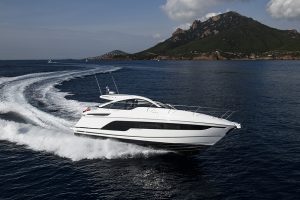Land Rover: World Champions
Land Rover commits to supporting conservation across our planet
As well as removing more
than 13,000 tonnes of CO2 emissions from Land Rover’s annual supply chain
footprint in the past five years, the company has also been heavily involved
with humanitarian work from South America to Africa and beyond.
Now Land Rover has further
underlined their commitment to help protect the planet by supplying customised Defenders
to help communities fight against illegal poaching. It forms part of Land
Rover’s ‘Our Planet’ initiative, which focuses on preserving the planet and protecting
the earth.
In Sri Lanka,
a specially adapted Land Rover Defender is now helping to rescue orphaned
elephant calves. Presented to theBorn Free
Foundation, this unique vehicle has been adapted to pick up the
baby elephants with minimum distress – using bespoke winches and a tail lift,
plus a fridge for medicines – before bringing them to the safety of Born Free’s
Elephant Transit Home.
Meanwhile, in
Kenya – where thousands of wild animals are trapped and illegally slaughtered
for the commercial ‘bushmeat’ industry every year – two more Land Rover
Defenders play an invaluable role in the Born
Free Foundation’s anti-poaching activities, enabling wardens from
Kenya’s Wildlife Service to get to previously inaccessible areas. These
Defenders are on the front line of the ongoing war against illegal poaching,
and in action every single day – helping the wardens to apprehend poachers and
remove their snares.
Meanwhile Land
Rover will launch one of their most ambitious projects ever: ‘Atlantic Rising’.
It’s a global mission involving three Cambridge graduates and a Land Rover
Defender 110. The project – in conjunction with London’s Royal Geographical
Society – involves a 32,000km expedition along both Atlantic coastlines,
travelling through 31 countries, to raise awareness of the impact of climate
change.
The team will
attempt to navigate the land all the way around the Atlantic by following the
one metre contour line, which scientists forecast could become the new
coastline in 100 years. En route, they’ll be creating an educational network of
up to 10,000 students, as well as reporting from some of the remotest coastal
regions of the Atlantic Ocean. For more on Land Rover’s Our Planet initiatives,
and to follow the Atlantic Rising team’s progress, click here.










